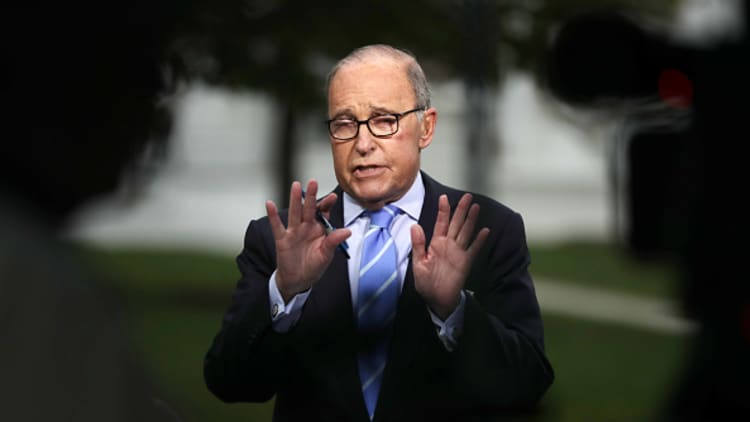
The recent sell-off in stocks reflects fear that Congress will be remade in the upcoming election and pro-growth policies will fall by the wayside, according to White House advisor Larry Kudlow.
Kudlow, speaking to reporters outside the White House on Tuesday, blamed the market decline on the midterm elections. "I think the stock market is worried that Congress will change and will overturn these pro-growth policies," he said. The "correction has to overcome the uncertainty about this election."
But the October market drop seemed to be more about fears of slowing global growth and rising interest rates than anything to do with the election.
The Dow Jones Industrial Average fell more than 500 points on Tuesday and was on track for its worst month since August 2015, in volatile trading that saw broad-based declines. The tech-heavy Nasdaq is on track for its lowest close in nearly six months.
It is the middle of corporate earnings reporting season, and several large companies like Caterpillar and 3M have disappointed investors.
Dow component Caterpillar, which makes heavy equipment for farming and construction, fell 9 percent after saying its manufacturing costs rose because of higher material and freight expenses, which themselves were driven by higher steel prices and tariffs.
The Trump administration has slapped tariffs on imports of steel and aluminum from several countries and on billions of dollars of goods from China. At the same time, the Federal Reserve has hiked interest rates three times this year and is expected to raise again in December, sparking fears in the housing and construction sector that rising mortgage rates will choke off demand.
The Fed has moved on rates after years of historic lows to stay ahead of inflation. Unemployment is at decades-old lows and the economy is growing.

